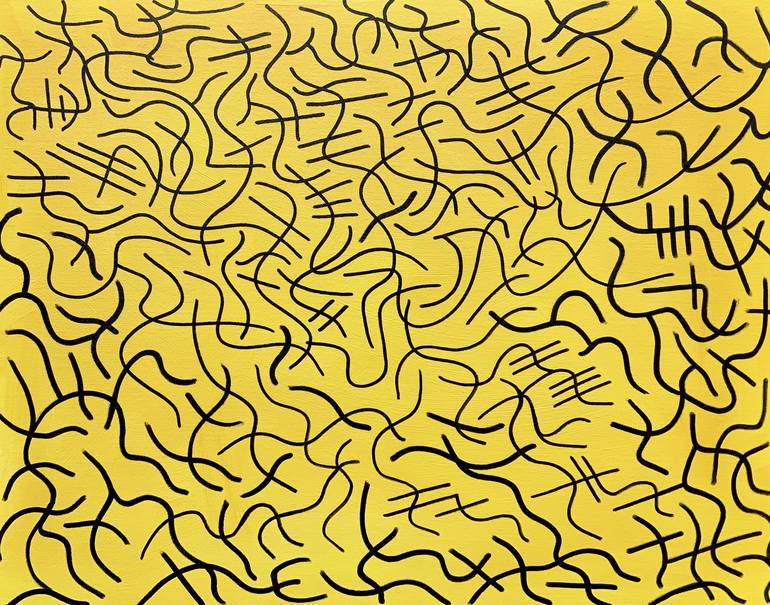





64 Views
3
View In My Room
'If you act like that bee acts' Print
Philip Leister
Open Edition Prints Available:
Select a Material
Canvas
Select a Size
20 x 16 in (€102)
Select a Canvas Wrap
Black Canvas
Add a Frame
No Frame
€102
64 Views
3
Artist Recognition

Artist featured in a collection
ABOUT THE ARTWORK
DETAILS AND DIMENSIONS
SHIPPING AND RETURNS
Look for the bare necessities The simple bare necessities Forget about your worries and your strife I mean the bare necessities Old Mother Nature's recipes That brings the bare necessities of life Wherever I wander, wherever I roam I couldn't be fonder of my big home The bees are buzzin' in the tree...
Year Created:
2021
Subject:
Medium:
Print, Giclee on Canvas
Rarity:
Open Edition
Size:
20 W x 16 H x 1.25 D in
Ready to Hang:
Yes
Frame:
Not Framed
Canvas Wrap:
Black Canvas
Packaging:
Ships in a Box
Delivery Cost:
Calculated at checkout.
Delivery Time:
Typically 5-7 business days for domestic shipments, 10-14 business days for international shipments.
Returns:
All Open Edition prints are final sale items and ineligible for returns. Visit our help section for more information.
Handling:
Ships in a box. Art prints are packaged and shipped by our printing partner.
Ships From:
Printing facility in California.
Need more information?
Need more information?
I’m (I am?) a self-taught artist, originally from the north suburbs of Chicago (also known as John Hughes' America). Born in 1984, I started painting in 2017 and began to take it somewhat seriously in 2019. I currently reside in Oklahoma! (And yes, the birthplace of Ron Howard. Director of such films as COCOON and Willow.) with my wife and kiddos. Plus, my three dogs - Pebbles (a.k.a. Jaws, Brandy, Fang), Bam Bam (a.k.a. Scrat, Dinki-Di, Trash Panda, Dug), and Mystique (a.k.a. Lady), and five cats - Burglekutt (a.k.a. Ghostmouse Makah), Vohnkar! (a.k.a. Storm Shadow, Grogu), Hal (a.k.a. Ginger, Milo, Fred), Weenie (a.k.a. Mary Ann, Otis, George), and Meegosh (a.k.a. Lenny). Part of the preface to the 'Complete Works of Emily Dickinson helps sum me up as a person and an artist: "The verses of Emily Dickinson belong emphatically to what Emerson long since called ‘the Poetry of the Portfolio,’ something produced absolutely without the thought of publication, and solely by way of expression of the writer's own mind. Such verse must inevitably forfeit whatever advantage lies in the discipline of public criticism and the enforced conformity to accepted ways. On the other hand, it may often gain something through the habit of freedom and unconventional utterance of daring thoughts. In the case of the present author, there was no choice in the matter; she must write thus, or not at all. A recluse by temperament and habit, literally spending years without settling her foot beyond the doorstep, and many more years during which her walks were strictly limited to her father's grounds, she habitually concealed her mind, like her person, from all but a few friends; and it was with great difficulty that she was persuaded to print during her lifetime, three or four poems. Yet she wrote verses in great abundance; and though brought curiosity indifferent to all conventional rules, had yet a rigorous literary standard of her own, and often altered a word many times to suit an ear which had its own tenacious fastidiousness." -Thomas Wentworth Higginson "Not bad... you say this is your first lesson?" "Yes, but my father was an [art collector], so…"
Artist Recognition

Artist featured by Saatchi Art in a collection
Why Saatchi Art?
Thousands of
5-Star Reviews
We deliver world-class customer service to all of our art buyers.
Global Selection of Original Art
Explore an unparalleled artwork selection from around the world.
Satisfaction Guaranteed
Our 14-day satisfaction guarantee allows you to buy with confidence.
Support Emerging Artists
We pay our artists more on every sale than other galleries.
